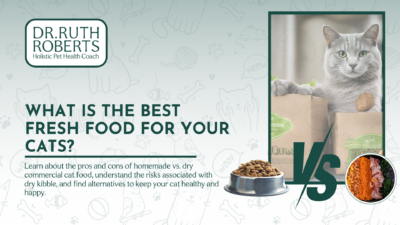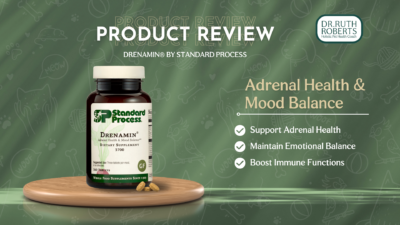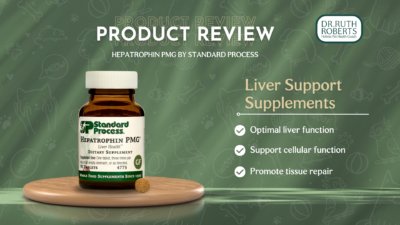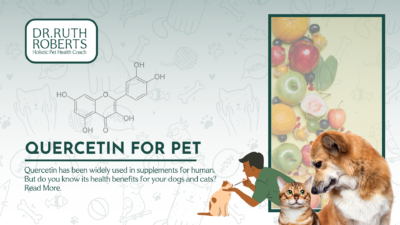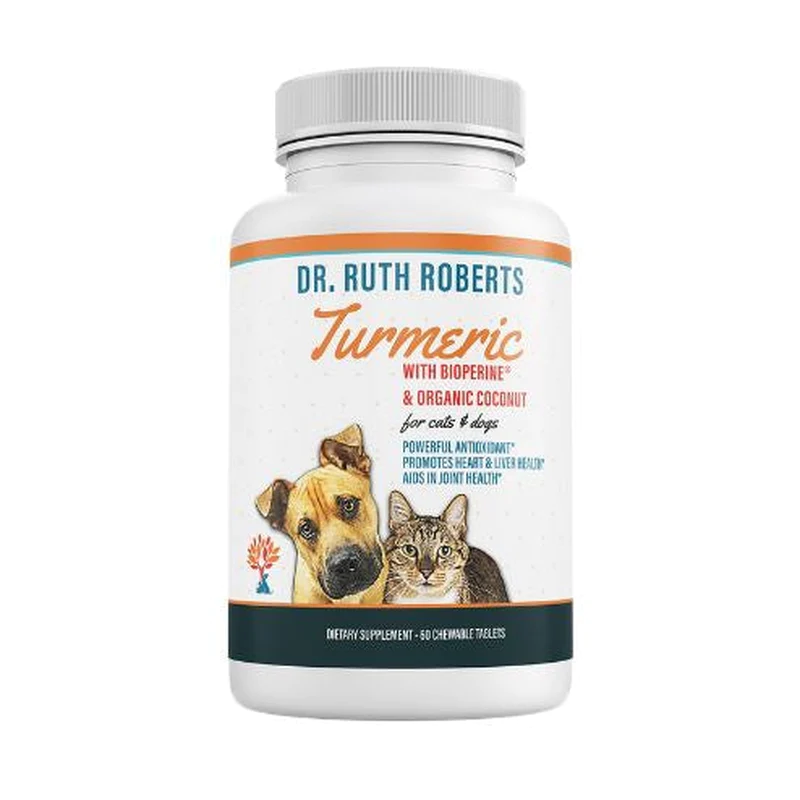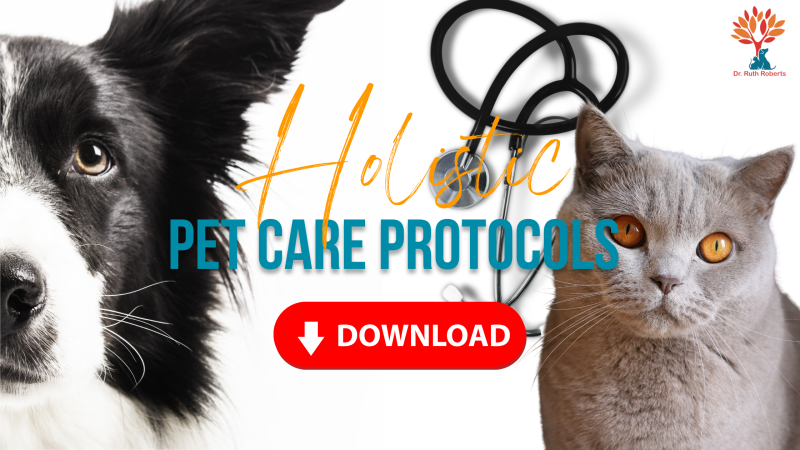What do pet allergies and autoimmune disease have in common? Well, they can both make your pet feel pretty crummy. But the source of both of these ailments lies in the immune system. Incorrect response from the immune system is to blame for both pet allergies and autoimmune disease. So what does this mean for your pet, and how can you solve the problem?
Allergies… UGH.

Many pet owners are all too familiar with the symptoms and misery of an allergic pet. Constant scratching, licking, scooting, ear infection, GI issues… the list just goes on and on. But few of us know exactly what those symptoms mean.
When your pet is feeling super itchy, it’s because their immune system has wildly overreacted to the presence of a specific allergen. This causes major inflammation, and the symptoms can range all over the board. Some common sources of pet allergens are fleas, grasses and pollens, or food (though true food allergies only occur about 5-10% of the time). But many pet parents are unaware of the dangers hidden in their household cleaning supplies. Lots of common cleaners include carcinogens and plenty of other irritants that can cause allergic reaction, or even contribute to autoimmune disease.
Autoimmune Disease
Autoimmune disease is another clear cut case of the immune system firing off in the wrong direction. With autoimmune disease of all kinds, the body and its cells are literally attacked by their own immune system. In each type of autoimmune disease , this response is specific to a certain kind of cell (such as platelets, red blood cells), but sometimes can involve multiple cells or organs. Lupis, Immune Mediated Polyarthritis, and even Pillow Foot are some common autoimmune diseases seen in pets.
Triggers
Some pets may have underlying autoimmune disease, which goes undetected for sometime. All it takes is one trigger to set the immune system off,

suddenly spinning out of control. Unfortunately, vaccines can often contribute to or be an inciting contributor for the onset of autoimmune disease. Likewise, many heartworm and flea preventatives can have the same effect.
Even more common contributors to inappropriate immune responses, are the chemicals and toxins that are likely lurking in your own home. Many laundry detergents, pet shampoos, even floor and kitchen cleaners, contain chemicals that are harmful and toxic to both pets and people. Read your labels! If you can’t pronounce what’s going into a product, chances are you shouldn’t be using it.
“Leaky Gut” Syndrome
Diet is often a major player in the overreaction of the immune system. If your pet has been eating the same food for an extended period of time, it very well may be that they’ve developed an “allergy” to its ingredients – most likely the protein. When the gut sees the same protein day after day, it begins to fight back against those antigens.
“Leaky gut” syndrome, which is far more common in both people in pets than I’d like to admit, causes food to be improperly digested before it is passed to the cells, which causes an inflammatory response. Unfortunately, leaky gut syndrome is often a chronic reaction to something else (those pesky food antigens, chemical toxicity, allergens and environmental particles), but one that creates a whole new host of problems.
So, if pet allergies and autoimmune disease have so much in common, can we treat them the same way?
You bet! The trick with both pet allergies and autoimmune disease, is to get the immune system to stop overreacting, and start responding appropriately. Some autoimmune diseases are a little more complicated, and require additional treatments, but the foundation of controlling the disease starts in the gut.
More likely than not, with both pet allergies and autoimmune disease, Leaky Gut is at play somewhere. Figuring out what’s causing this GI reaction, and helping to heal your pet’s gut, will be one of your most important steps. Three good places to start are by checking your pet’s diet, using probiotics, and getting more Omega-3 fatty acids.
Investigational Dieting
 A rotation and elimination diet is going to be your pet’s best friend here. Start by making a list of the foods your pet has eaten for the last six months, and divide those proteins, veggies and carbohydrates into three sectors, making three completely different batches of food. By seeing how your pet responds to each batch, and its ingredients, you can start to pinpoint patterns, nailing down the specific foods your pet can and cannot tolerate. Use the same ingredients for treats during this time, to avoid any contamination.
A rotation and elimination diet is going to be your pet’s best friend here. Start by making a list of the foods your pet has eaten for the last six months, and divide those proteins, veggies and carbohydrates into three sectors, making three completely different batches of food. By seeing how your pet responds to each batch, and its ingredients, you can start to pinpoint patterns, nailing down the specific foods your pet can and cannot tolerate. Use the same ingredients for treats during this time, to avoid any contamination.
The Original CrockPet Diet is an easy way to establish an elimination diet with your pet, while making sure they are still receiving completely balanced and adequate nutrition. The only tweak you’ll want to make right away, though, is to check the ingredients of your multivitamin. Whole food and glandular supplements aren’t always best to use in this specific case, as they contain plant and protein based nutrients. Holistic Total Body Support, for example, contains both beef and pork protein ingredients. Try a plain human multivitamin instead, while you’re on the hunt for those problem-causing food antigens.
My Gut Instincts program gives step-by-step details and instructions for starting a rotation and elimination diet for your pet. If you need additional help getting your pet started, check it out. We could always hop on the phone for a consultation if you’d like some personal support.
Probiotics

If I’ve said it once, I’ve said it a million times: Probiotics are a pet’s very best friend! At least 70% of the immune system’s chemicals are made in the gut. So, wouldn’t it make the most sense to make sure the good guys are outnumbering the bad guys? That’s exactly what probiotics are here to help with.
A high-dose, quality probiotic is going to load your pet’s gut up with good flora and bacteria. Many pets will see almost immediate relief of their allergic symptoms when a probiotic is introduced. That’s proof that the immune system and gut health are closely intertwined! Start your pet on a super high-dose probiotic every day for 40 days, then begin to taper it down. Most importantly, don’t stop giving it because you’ve seen improvement! Once you’ve established that god bacteria balance, you want to keep it rolling so your pet’s condition doesn’t regress.
Omega-3 Fatty Acids
 Omega-3 fatty acids are the most anti-inflammatory Omega Acids out there. There are an awful lot of omega fatty acids, but others (like Omega-6) can actually be PRO-inflammatory. While this particular fatty acid is helpful in treating some skin conditions, it’s definitely not ideal to involve in pet allergies or autoimmune disease.
Omega-3 fatty acids are the most anti-inflammatory Omega Acids out there. There are an awful lot of omega fatty acids, but others (like Omega-6) can actually be PRO-inflammatory. While this particular fatty acid is helpful in treating some skin conditions, it’s definitely not ideal to involve in pet allergies or autoimmune disease.
With that in mind, certain fish oils are a great source for Omega-3’s. Look for sustainably sourced fish oils, ideally from smaller fishes like anchovy or sardines (the little guys don’t absorb and concentrate environmental toxins and heavy metals like bigger fish do). If your pet doesn’t tolerate fish well, you can also try algal oil or calamari oil. Both are great sources of Omega-3 fatty acids, and are often available in sustainably-sourced options.
Know what you’re up against
 All of this being said, the best way to know what battles your pet is fighting is to get them tested. Environmental, food and even chemical testing is available for pets, and these tests are really quite reliable. A simple blood or saliva sample can be analyzed to determine what your pet is sensitive to, and takes out a lot of the guesswork! Glacier Peak Holistics offers a broad spectrum of sensitivity-testing, and can provide you with some great resources for managing your pet’s results.
All of this being said, the best way to know what battles your pet is fighting is to get them tested. Environmental, food and even chemical testing is available for pets, and these tests are really quite reliable. A simple blood or saliva sample can be analyzed to determine what your pet is sensitive to, and takes out a lot of the guesswork! Glacier Peak Holistics offers a broad spectrum of sensitivity-testing, and can provide you with some great resources for managing your pet’s results.
Getting your pet tested for allergies or sensitivities will help you get to the bottom of their misery faster, and on the road to recovery. It’s always a good idea to work with a knowledgeable veterinarian when you’re navigating these waters. As pet allergies and autoimmune disease can present themselves similarly, it’s beneficial to have a professional that can easily spot the difference. Allergy test results provide a great base for records review when I work with my consultation patients, and can be just as valuable as blood testing and physical examinations.
Win the Balance Battle

Fighting pet allergies and autoimmune disease can be frustrating for both pets and their owners. But it doesn’t have to be. If you know what culprits you are fighting in your pet’s food, home and environment, you can set yourself up for a win. Simply masking symptoms may bring temporary relief, but is not the answer. Start by healing your pet from the inside out to get them on a smooth and speedy road to recovery. Get your pet’s immune system in check, so you can spend your days fetching and snuggling, instead of itching and scratching.




